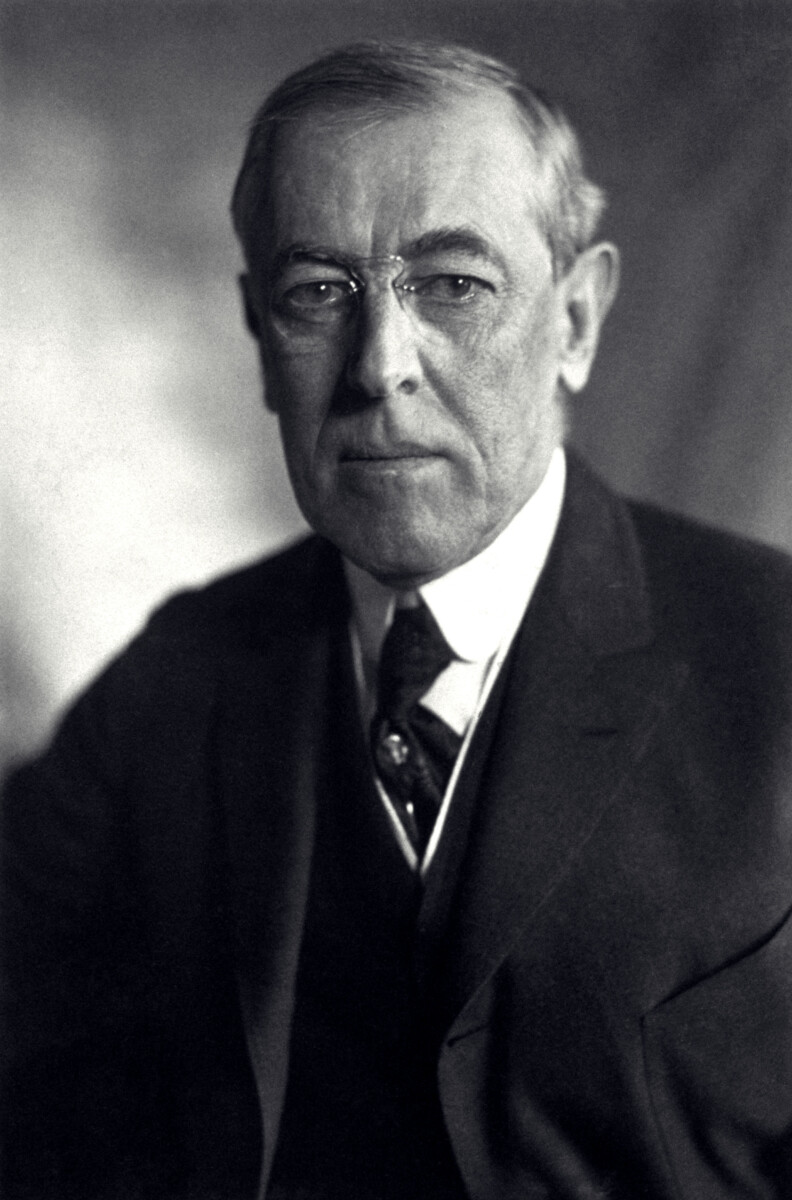George Washington: The Precedent Creator

Here’s something that still shocks people today – George Washington was the only person unanimously elected president of the United States by the Electoral College. Think about that for a moment in our era of razor-thin election margins and bitter divisions. Washington realized that everything he did would set a precedent for future commanders-in-chief and most importantly, limited his own power. He could’ve been king, but he chose to walk away after two terms instead.
What made Washington truly revolutionary wasn’t just winning the war – it was what he did afterward. Although his popularity would likely have allowed him to win re-election until his death, Washington limited himself to two terms and accepted a salary so that, someday, a non-wealthy man could afford to be president. This guy literally created the template for peaceful transitions of power that we still follow today.
Abraham Lincoln: The Union Savior Who Redefined Presidential Power

As the most activist President in history, Lincoln transformed the President’s role as commander in chief and as chief executive into a powerful new position, making the President supreme over both Congress and the courts. During the Civil War, Lincoln basically rewrote the rulebook on executive authority. Lincoln broke a multitude of laws and blatantly ignored the constitution repeatedly, going to war without ever making a declaration of war, and before consulting Congress no less.
But here’s the thing about Lincoln that makes him legendary – the ends justified the means. The most lasting accomplishments attributed to Lincoln are the preservation of the Union, the vindication of democracy, and the death of slavery, accomplished by his ability to energize and mobilize the nation by appealing to its best ideals. In a 2024 scholarly survey, Lincoln was rated the greatest president with an average score of 93.9/100, proving his legacy only grows stronger with time.
Franklin D. Roosevelt: The Depression Fighter Who Rebuilt America

Serving for 12 years, far longer than any other president, FDR had such a profound impact on the nation and the world that he is widely recognized as one of the transformational figures of the 20th Century. When Roosevelt took office, America was on its knees. Because of the greatest redistribution of income downward in the nation’s history, a middle-class country had emerged with half of the American people doubling their income while the bottom half saw their share of the country’s income increase by 16 percent.
Roosevelt didn’t just fix the economy – he revolutionized how Americans thought about government’s role in their lives. He was a pioneer in the creation of a strong social safety net to help Americans in their time of need, launching unemployment insurance and Social Security in 1935 to provide income assistance to the elderly. By the time he left office, the United States had become a superpower where the federal government had become the engine of change in nearly every sphere of national life.
Theodore Roosevelt: The Trust-Busting Progressive Who Modernized the Presidency

Theodore Roosevelt introduced “charisma” into the political equation, had a strong rapport with the public and understood how to use the media to shape public opinion. This wasn’t just personality politics – TR fundamentally changed what it meant to be president. He was the first President whose election was based more on the individual than the political party, and when people voted Republican in 1904, they were generally casting their vote for Roosevelt the man.
Roosevelt believed the presidency should be an active force for change, not just a ceremonial position. He thought that the President had the right to use any and all powers unless they were specifically denied to him and wanted to challenge prevailing notions of limited government. The most popular President up to his time, Roosevelt used his enthusiasm to win votes, to shape issues, and to mold opinions, changing the executive office forever.
Thomas Jefferson: The Democratic Visionary Who Expanded America

Thomas Jefferson was the principal author of the Declaration of Independence, which asserted rights and freedoms of American citizens. But Jefferson’s impact went far beyond just words on paper – he fundamentally shaped what America would become. His presidency marked the first peaceful transfer of power between opposing political parties, proving that democracy could actually work in practice.
Jefferson’s Louisiana Purchase doubled the size of the United States overnight, setting the stage for westward expansion that would define the next century of American history. He also championed the idea of religious liberty and separation of church and state, principles that remain cornerstone values of American democracy. Jefferson proved that a president could be both a philosopher and a pragmatist, combining high ideals with practical governance.
Andrew Jackson: The Populist Who Democratized American Politics

Andrew Jackson was America’s first champion of populism, or political power for the common man. Before Jackson, American politics was largely controlled by the educated elite and wealthy landowners. Jackson changed all that by appealing directly to ordinary Americans. Jackson began the era now known as Jacksonian Democracy and substantially increased the power of the presidency, prompting criticism from traditionalists.
Jackson’s presidency marked a fundamental shift toward broader democratic participation. America’s early republic was relatively limited in terms of popular democracy, thanks to voting requirements like property ownership and paying taxes, but Jackson helped tear down these barriers. His approach to governing – direct, forceful, and unapologetic – created a new model for presidential leadership that emphasized personal connection with voters over political party machinery.
Ronald Reagan: The Conservative Revolutionary Who Reshaped Modern Politics

Ronald Reagan was a transformational President whose leadership and symbiotic relationship with Soviet leader Mikhail Gorbachev set the stage for a peaceful resolution of the Cold War. But Reagan’s impact went far beyond foreign policy. The Reagan era emphasized that the conservative “Reagan Revolution” led by President Ronald Reagan in domestic and foreign policy had a lasting impact. Even Barack Obama acknowledged this, noting that Reagan changed America’s trajectory in ways that other presidents didn’t.
Reagan signed the Economic Recovery Tax Act of 1981 and later the Tax Reform Act of 1986, which brought the lowest individual and corporate income tax rates of any major industrialized country. Reagan’s economic policies resulted in an unprecedented 92-month long economic boom, from November 1982 to July 1990, with expansion in GDP, employment, and the Dow Jones Industrial Average. His philosophy of limited government and free markets became the dominant conservative framework that still shapes Republican politics today.
James Madison: The Constitutional Architect Who Built America’s Foundation

James Madison was responsible for drafting the United States Constitution and the United States Bill of Rights, and along with Hamilton and John Jay, wrote the Federalist Papers advocating support for the US constitution. Think about it – without Madison, we might not have had the constitutional framework that has governed America for over two centuries. His work creating the system of checks and balances and separation of powers became the foundation of American democracy.
As president, Madison proved that the Constitution could work in practice during times of crisis. Madison was president during the War of 1812, expanded the role of the federal government by creating the Second National Bank, and led the United States to acquire lots of Native American territory. He showed that constitutional government could be both principled and effective, establishing precedents for how future presidents would balance federal power with constitutional limits.
John F. Kennedy: The Inspirational Leader Who Modernized Presidential Communication

John F. Kennedy was president for three years before his untimely assassination and was the first Catholic president who presented a young and liberal face to America. Kennedy revolutionized how presidents communicated with the American people, using television and his natural charisma to connect directly with citizens. His televised debates with Nixon showed the power of media in politics, and his press conferences became must-watch television.
Beyond style, Kennedy’s presidency represented a generational shift in American leadership. He challenged Americans to ask what they could do for their country, launched the Peace Corps, and committed the nation to landing on the moon. His handling of the Cuban Missile Crisis demonstrated how modern presidents needed to navigate nuclear-age diplomacy. Kennedy ranks tenth among presidents in the 2024 scholarly survey with a score of 68.4, reflecting his enduring influence despite his brief time in office.
Lyndon Johnson: The Master Legislator Who Transformed Civil Rights

Johnson introduced his Great Society and the War on Poverty initiatives and successfully passed both the Civil Rights Act of 1964 and the Civil Rights Act of 1968. Johnson understood how to work the levers of power better than almost any president in history. Using his legendary skills of persuasion and arm-twisting, he pushed through more transformative legislation than most presidents could dream of passing.
The scope of Johnson’s domestic achievements is staggering – Medicare, Medicaid, federal education funding, environmental protection, and voting rights all became reality during his presidency. However, for all of the positive aspects of his presidency, Johnson will ultimately be remembered for his failures over the Vietnam War. His story shows how even the most skilled political operators can be undone by the complexities of foreign policy and the limits of presidential power.
Woodrow Wilson: The Idealist Who Tried to Reshape the World Order

Wilson was a president opposed to war who finally took the US into World War One in 1917, and after the war sought to establish a League of Nations and provide a framework for resolving international conflict. Wilson fundamentally changed how America engaged with the world, moving the nation from isolationism toward international leadership. His “Fourteen Points” and vision for democratic self-determination influenced global politics for decades.
Wilson also transformed the domestic presidency through his progressive reforms and his use of moral rhetoric to rally public support. He established the Federal Reserve, passed antitrust legislation, and created the Federal Trade Commission. His approach to presidential leadership – combining moral vision with practical politics – became a model for future progressive presidents. Even though the Senate rejected his League of Nations, Wilson’s internationalist vision eventually triumphed in World War II and the creation of the United Nations.
Barack Obama: The Digital Age President Who Redefined Political Communication

More than two-thirds of Americans owned a smartphone by 2015, six times the ownership levels at the dawn of Obama’s tenure, and social media use grew from one-third of Americans in 2008 to widespread adoption. Obama didn’t just happen to be president during the digital revolution – he actively harnessed these new technologies to transform how presidents communicate and organize political movements.
The election of the nation’s first black president raised hopes that race relations would improve, and the U.S. economy is in much better shape now than it was after the Great Recession. Obama’s presidency represented both symbolic and substantive change, proving that America could elect someone who looked different from all previous presidents while successfully navigating major economic and social challenges. Obama ranks seventh among all presidents in the 2024 scholarly survey with a score of 73.8, the highest rating for any living president.
Looking Back at the Game-Changers

These twelve presidents didn’t just occupy the White House – they fundamentally altered the trajectory of American history. Some expanded presidential power during times of crisis, others redefined how presidents communicate with citizens, and still others transformed entire economic and social systems. What united them was their willingness to break with precedent and their ability to inspire Americans to embrace new possibilities.
The presidents who changed everything shared one crucial trait: they understood that leadership sometimes means going beyond what’s safe or conventional. Whether it was Washington stepping down from power, Lincoln preserving the Union, FDR creating the modern welfare state, or Reagan reshaping conservative politics, each left America fundamentally different than they found it. Which of today’s leaders will join this exclusive club of transformational presidents?





